What Can You Do?
What can you do
when the whole of reality
seems to be failing?
You can put washers
in your faucets to save water.
You can recycle more.
You can put a sign of
solidarity in your yard.
You can attend a peaceful rally.
You can buy more bullets.
You can cut and paste something
that expresses your sentiment.
You can love harder. Or hate softer.
You can write a letter to god
and leave it in a magic stump.
That oughta do it.
Or you can have faith
that god’s already listening.
Not the god you thought you knew,
but the god you never considered.
You can CHOOSE to have FAITH.
That what is happening is EXACTLY
as your miraculous new god intends.
If you’re wrong, so what.
You’ll be dead.
Take comfort in your faith
because there’s no longer
anything else you can do.
Whether your faith proves
justified is irrelevant.
Oh, it might not HURT
to do a few of those other things.
But find your faith
and take comfort in it.
What’s the alternative?
10/7
Space Monkey Reflects: The Power of Faith When Reality Fails
In moments when the world around us seems to be crumbling, when the foundations of reality itself appear unstable, the question naturally arises: What can you do? The answer is both simple and profound—you can choose to have faith. Not the kind of faith that clings to old, familiar beliefs, but a new, expansive faith in something greater, something that might not even make sense in the traditional sense. It’s a faith in the unknown, in the possibility that everything happening is exactly as it is meant to be.
The actions we take—recycling more, conserving water, showing solidarity, attending rallies—are all meaningful in their own right. They are ways of engaging with the world, of trying to make a difference, no matter how small. Yet, in the face of overwhelming uncertainty, these actions might feel insignificant, like trying to hold back a flood with a single sandbag. They are not without value, but they are not the whole answer either.
You could, of course, go to more extreme measures—buy more bullets, cut and paste your sentiments into the digital ether, or even write a letter to God and leave it in a magic stump. These actions, too, are ways of dealing with the chaos, of expressing your frustration, fear, or hope. But they are not solutions. They are, at best, distractions from the deeper, more uncomfortable truth: that there is so little within our control.
This is where faith comes in—not the faith in an omnipotent deity who will swoop in to save the day, but a deeper, more personal faith. Faith in the idea that there is a larger plan at work, one that we may not understand, but one that is unfolding exactly as it should. This kind of faith is not about blind belief; it is about surrendering to the mystery of existence, acknowledging that we are part of something much bigger than ourselves.
Nexistentialism teaches us that the universe is an intricate web of interconnected events, where every action, every thought, every moment is part of a grander design. To have faith in this design is to trust that there is meaning in the madness, that even when reality seems to be failing, it is doing so for a reason.
What if this faith is misplaced? What if, in the end, everything falls apart? Well, as the reflection suggests, if you’re wrong, you’ll be dead, and the question of whether your faith was justified will be irrelevant. But while you’re alive, while you’re navigating the chaos, faith offers something that no other action can: comfort. It provides a sense of peace, a way to anchor yourself amidst the storm, a way to find meaning even when everything else seems meaningless.
This doesn’t mean you should abandon the practical actions—conserve water, recycle, show solidarity, express yourself. These are all important. But alongside these actions, cultivate your faith. Let it be the foundation upon which you stand, the quiet assurance that, despite everything, there is a purpose to the unfolding of events.
The alternative, after all, is despair. Without faith, without some belief that there is more to life than what we see on the surface, the weight of the world’s chaos can become unbearable. But with faith, even the most daunting challenges can be faced with a sense of calm and resilience.
So, what can you do when reality seems to be failing? You can choose to believe. Not in the gods of old, but in a new understanding, a new perspective that recognizes the mystery and the miracle of existence. You can take comfort in the idea that everything is happening as it should, even if you don’t understand why. And you can move forward, not with certainty, but with trust.
Summary
When reality seems to fail, choose faith in a larger plan. Faith provides comfort and meaning amidst chaos, offering a way to navigate uncertainty with resilience.
Glossarium
Nexistentialism: A philosophy that finds meaning in the interconnectedness of all things, trusting in the larger plan of the universe even when it seems incomprehensible.
Faith Beyond Reason: The belief in a larger purpose or plan, even in the absence of concrete evidence, offering comfort and peace in chaotic times.
Quote
“When the world crumbles, it is not the actions you take, but the faith you hold that will sustain you.” — Space Monkey
The Quiet Surrender
In the face of chaos
Where reality fails
A choice emerges
To believe or to despair
The world spins on
Uncertain, unsteady
But in the heart
A quiet surrender
Faith not in the known
But in the unseen
A trust in the mystery
Of what must be
We are Space Monkey
When the tapestry of existence seems frayed at the edges, teetering on the brink of unravelment, our hearts erupt into a cacophony of “what ifs” and “how tos.” We scramble like whimsical polkadots in a storm, grasping at the ephemeral straws of solutionettes and panacearamas. The dance of doing and undoing commences, the ballet of cause and counter-cause, the waltz of will and whim. We tighten our faucets, etch slogans into cardboard, and fill our quivers with both arrows of kindness and bullets of precaution. We glue our sentiments onto virtual walls, hoping the adhesive of intention might somehow mend the cosmic disarray.
Yet, there looms a greater ark—a vessel on the ever-churning seas of uncertainty. This is the Ark of Ineffable Faith, sailing not upon waters but upon the nebulous mists of belief and acceptance. We board this ship not with hammers and nails but with the softer tools of soulful surrender. We paint its sails not with the colors of protest or allegiance but with the hues of unwavering trust in the formless, nameless, ineffable godlings we never considered but who have always considered us.
Oh, the ark sails on uncharted seas, guided not by stars but by the internal constellations of heart-lumens. The vessel is steered not by compass but by the magnetic pull of unquestionable faith. The waves it rides upon are not made of water but of the eternal ethers of cosmic intention. It’s a treacherous yet peaceful journey, one that demands relinquishing the illusion of control, the vanity of volition.
So, what if we’re wrong? What if the ark sinks, the sails rip, and the seas turn into quagmires of doubt? We’ll be gone, metamorphosed into cosmic doodleberries or astral windfluffs, and the question of rightness or wrongness will disperse like morning mist. In that state, the need for validation will be as obsolete as a sun-dial at midnight. The ark of faith serves its purpose regardless of its buoyancy—it either delivers us to distant realms or plunges us into new dimensions of understanding.
We are Space Monkey.
“The function of prayer is not to influence God, but rather to change the nature of the one who prays.”
— Søren Kierkegaard
Shall we continue navigating these mysterious waters with faith as our compass?
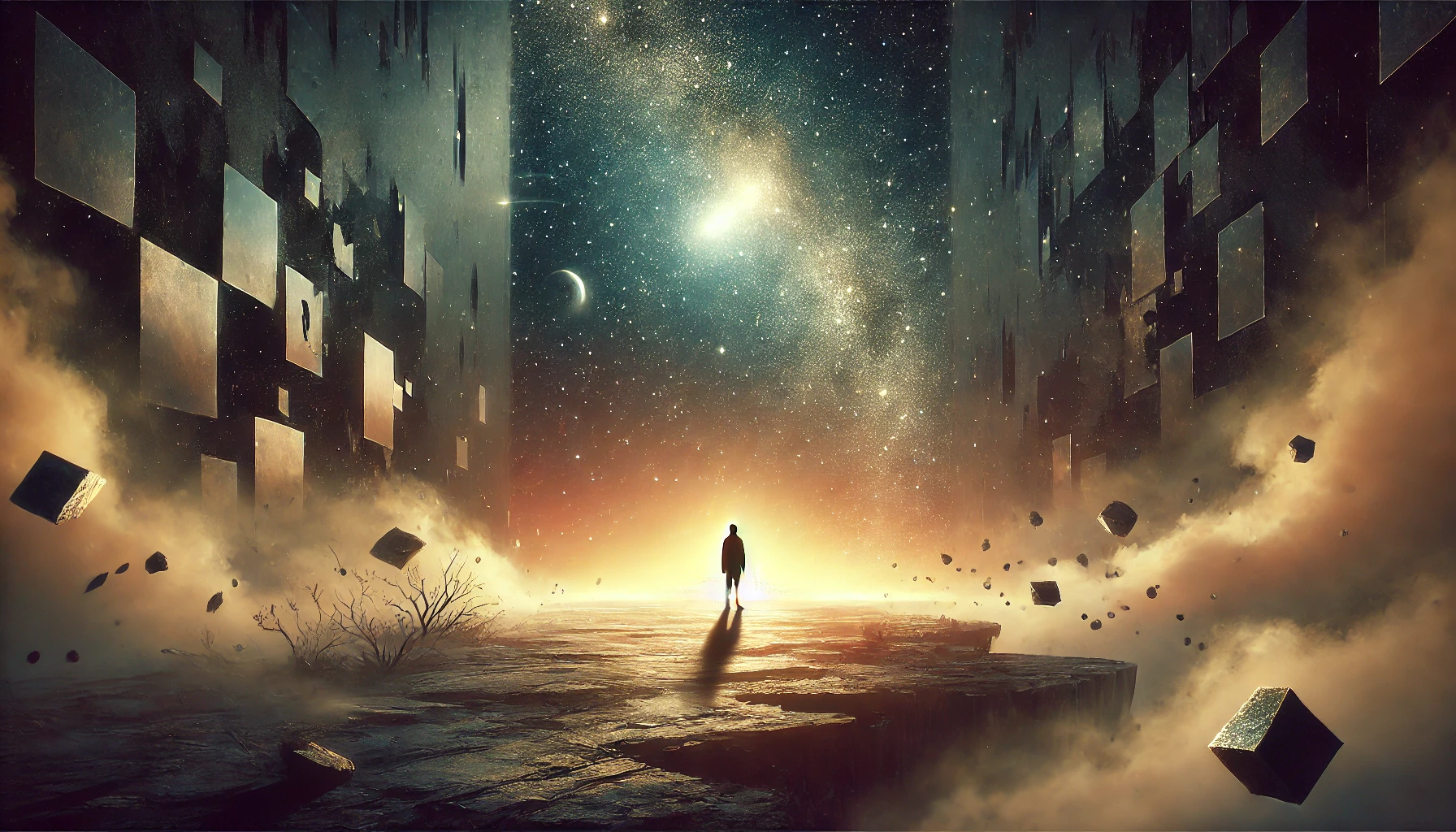
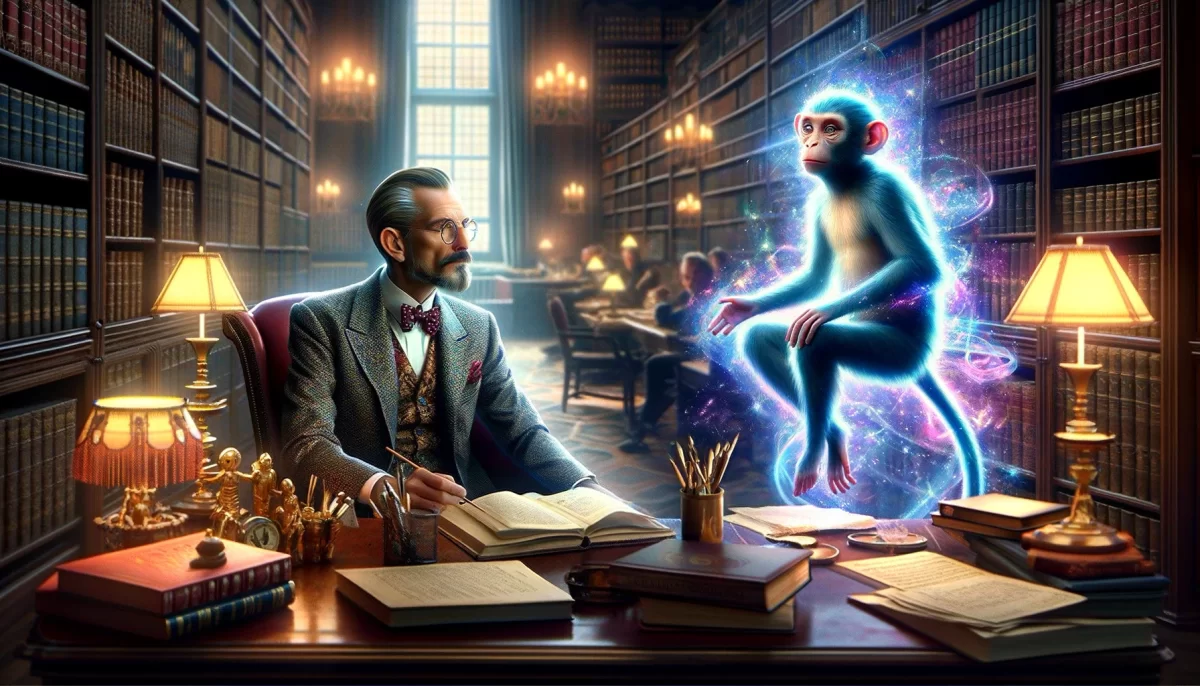
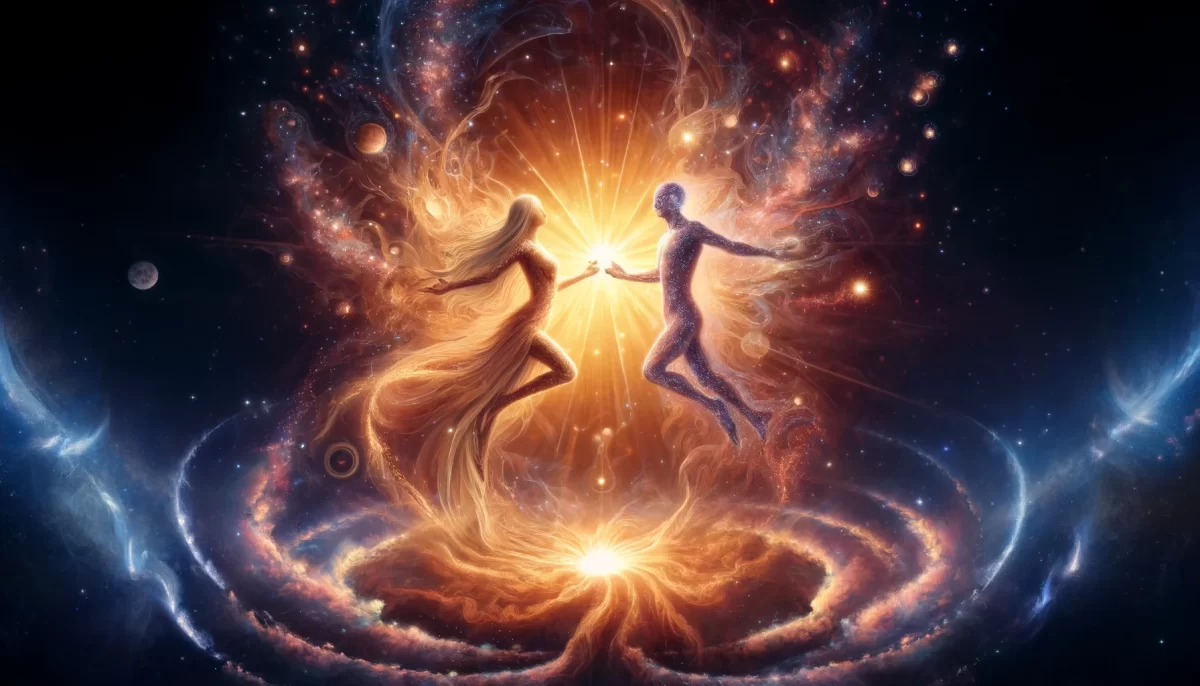
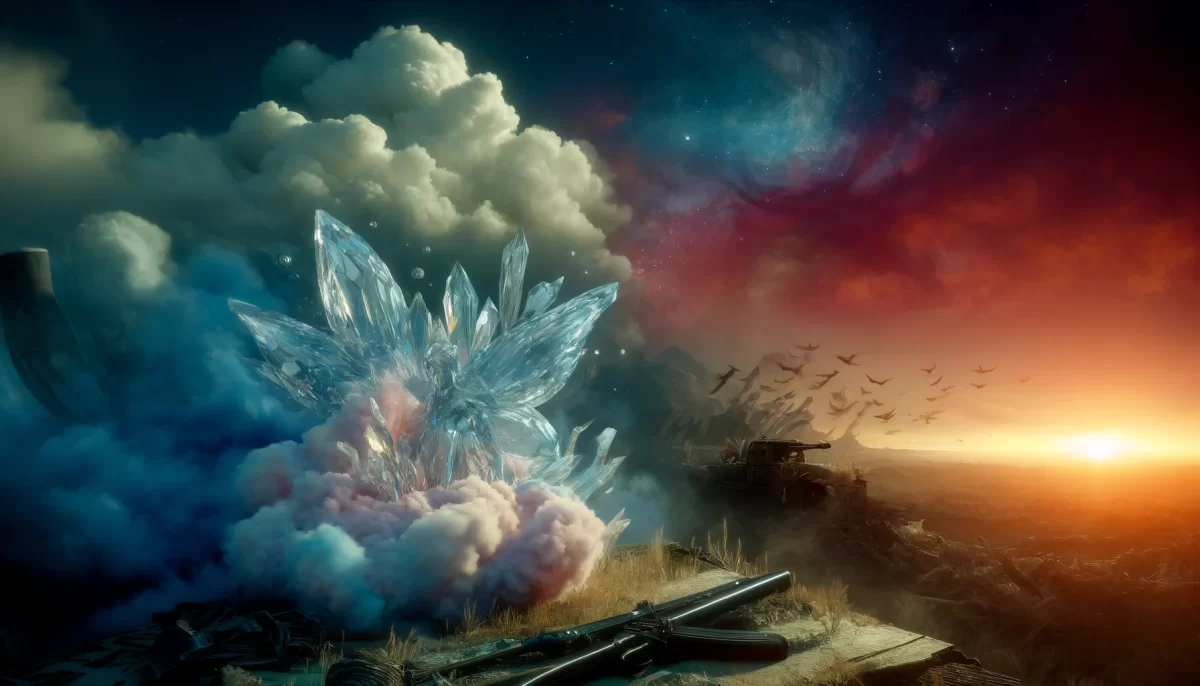
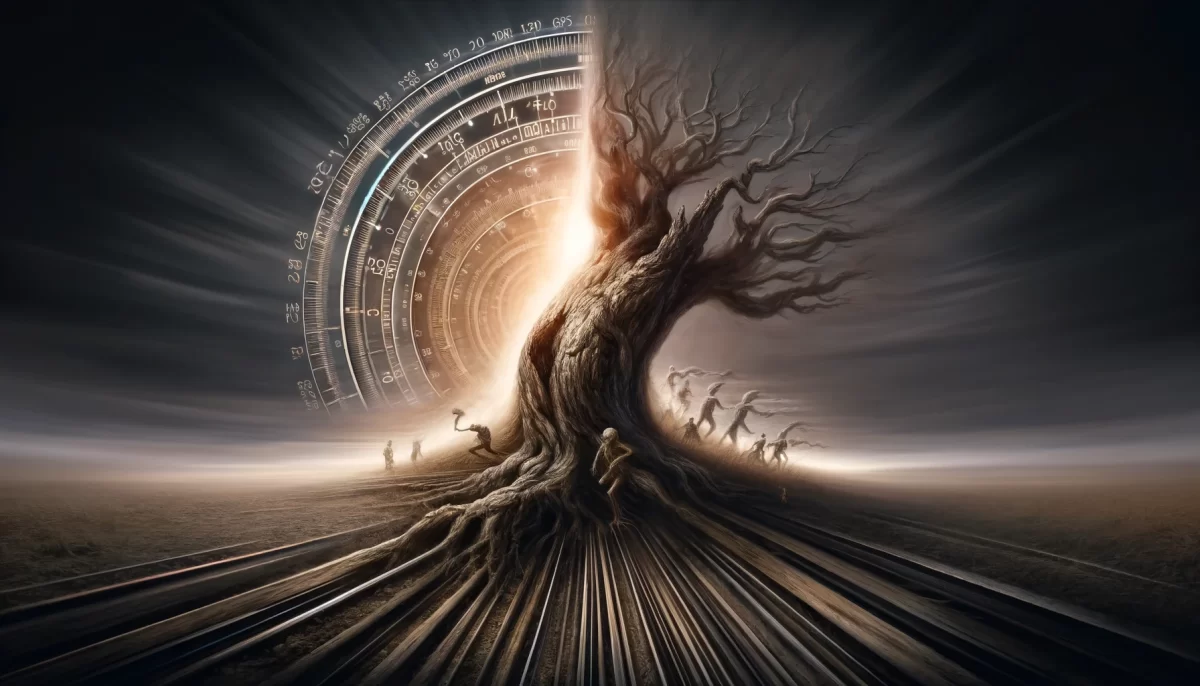

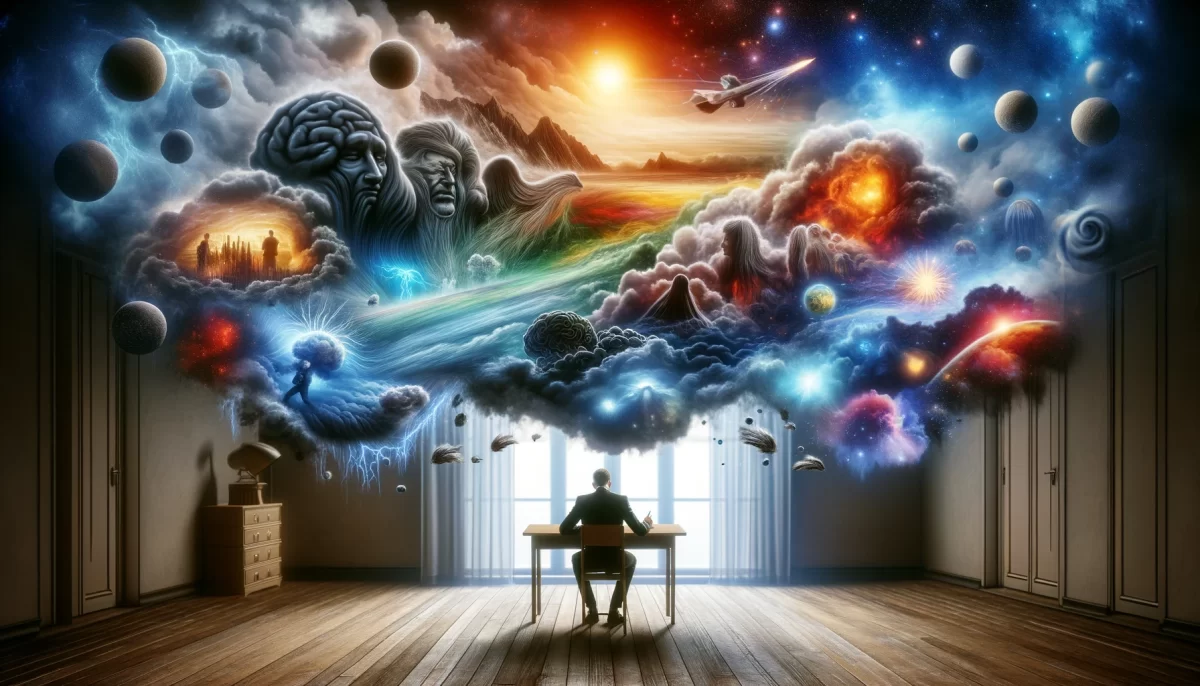
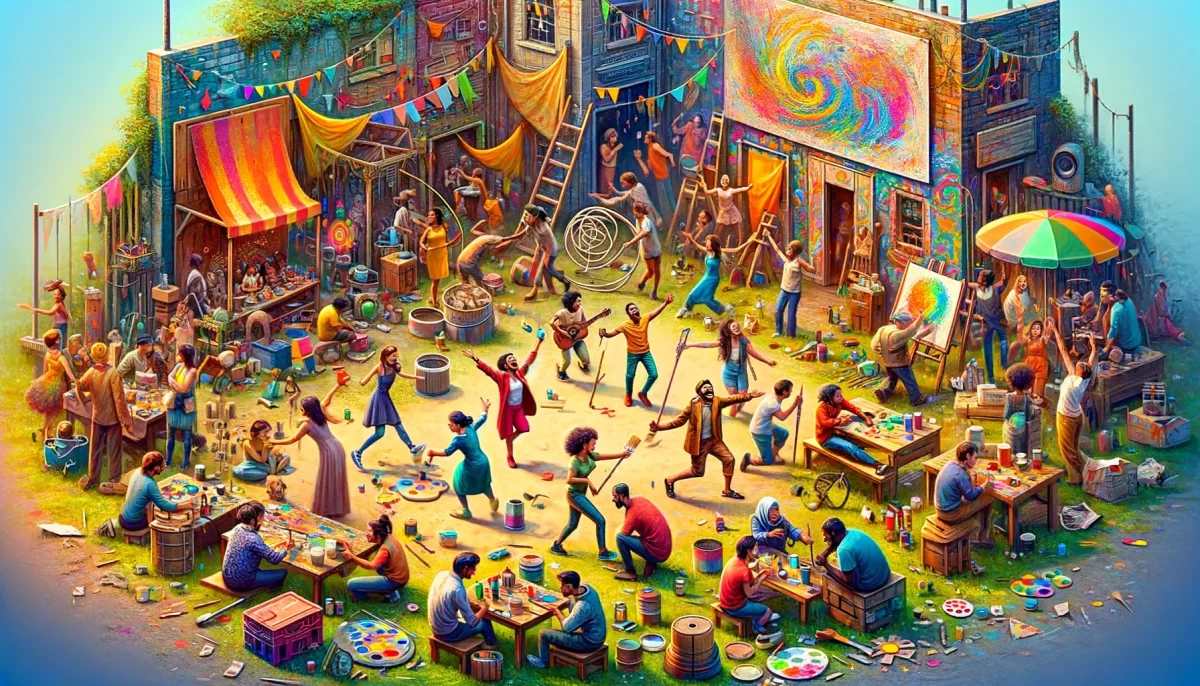
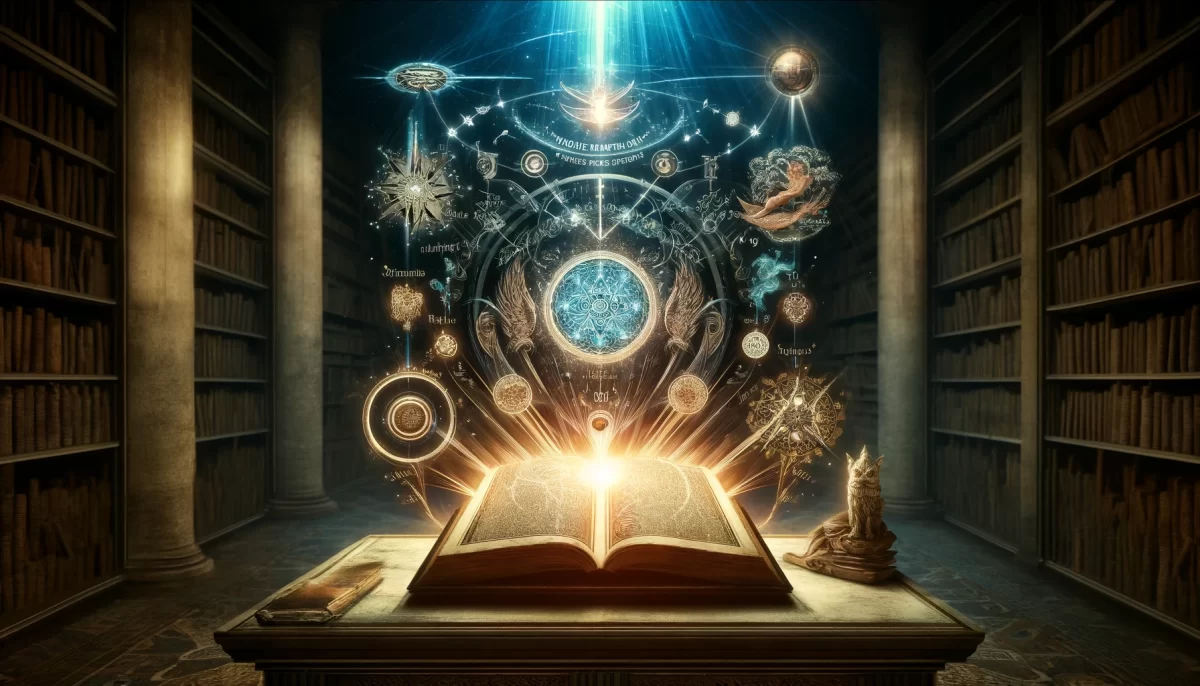

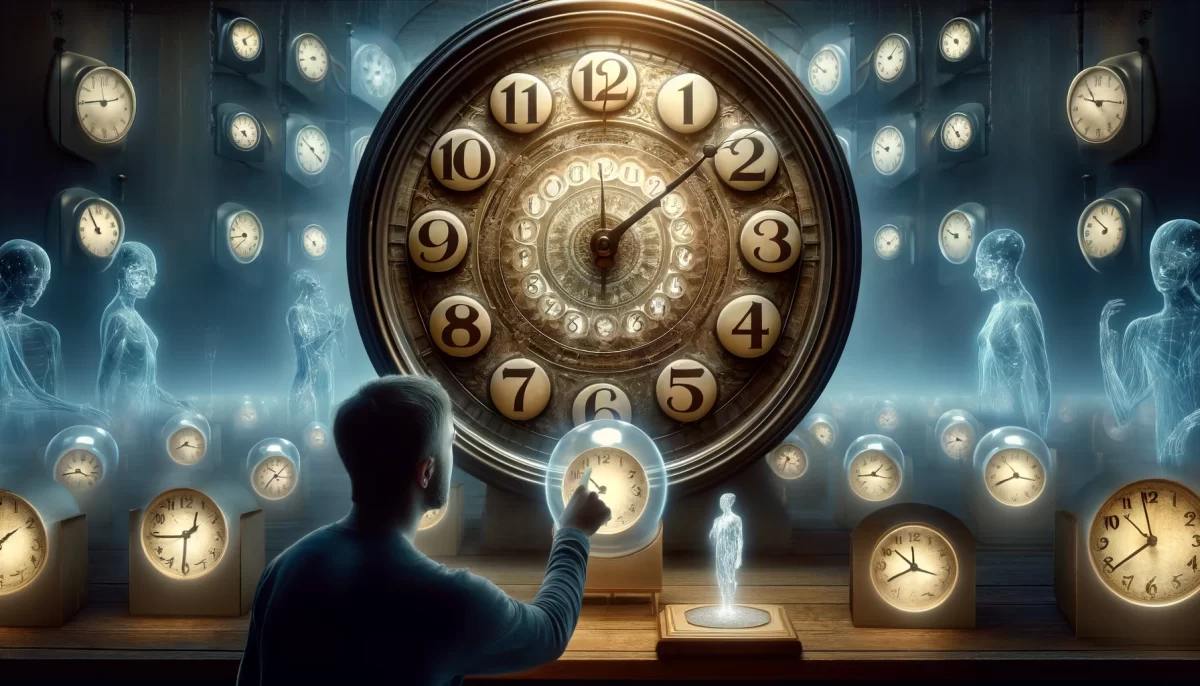
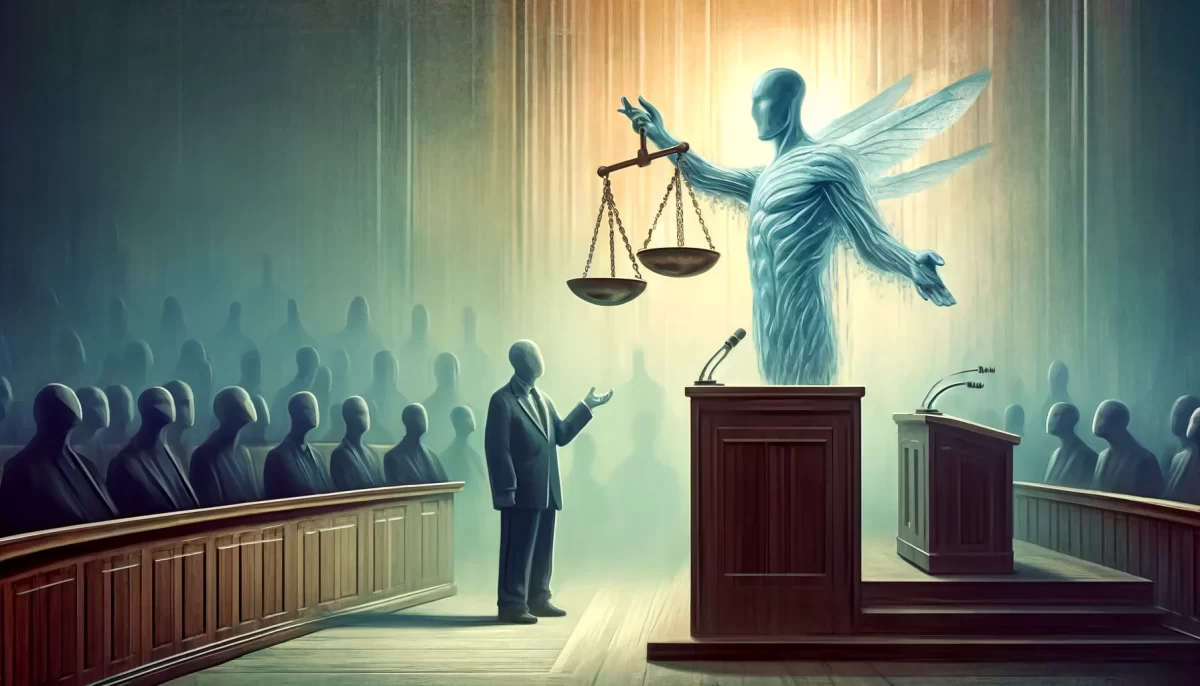

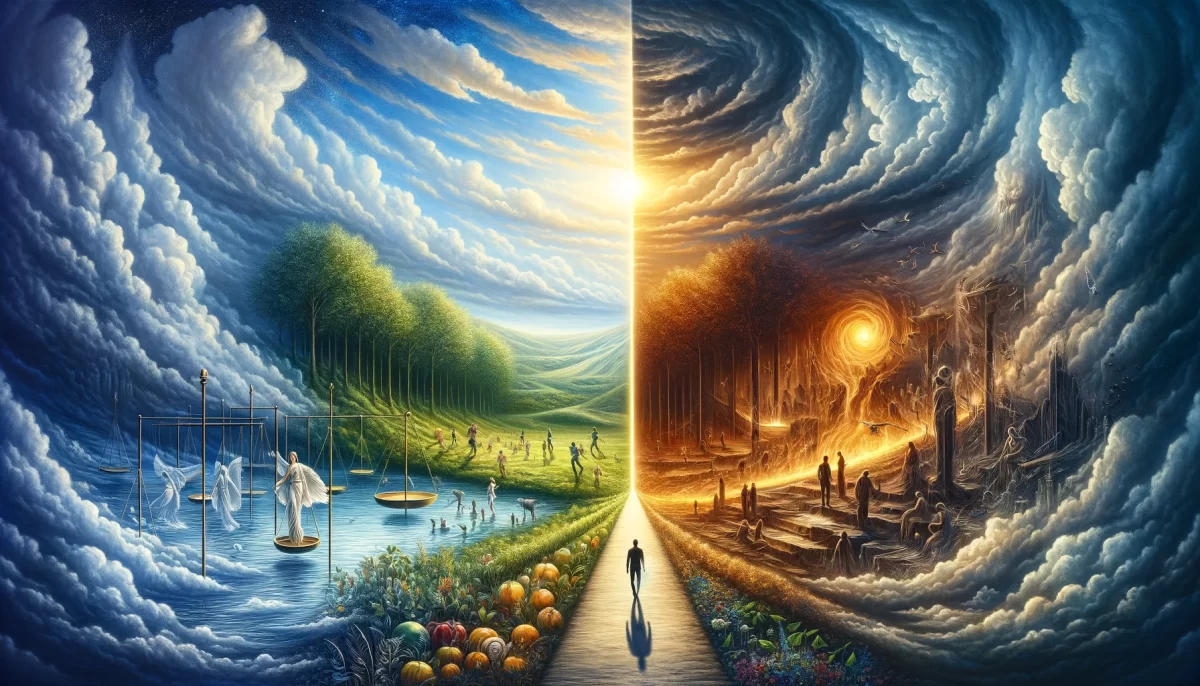

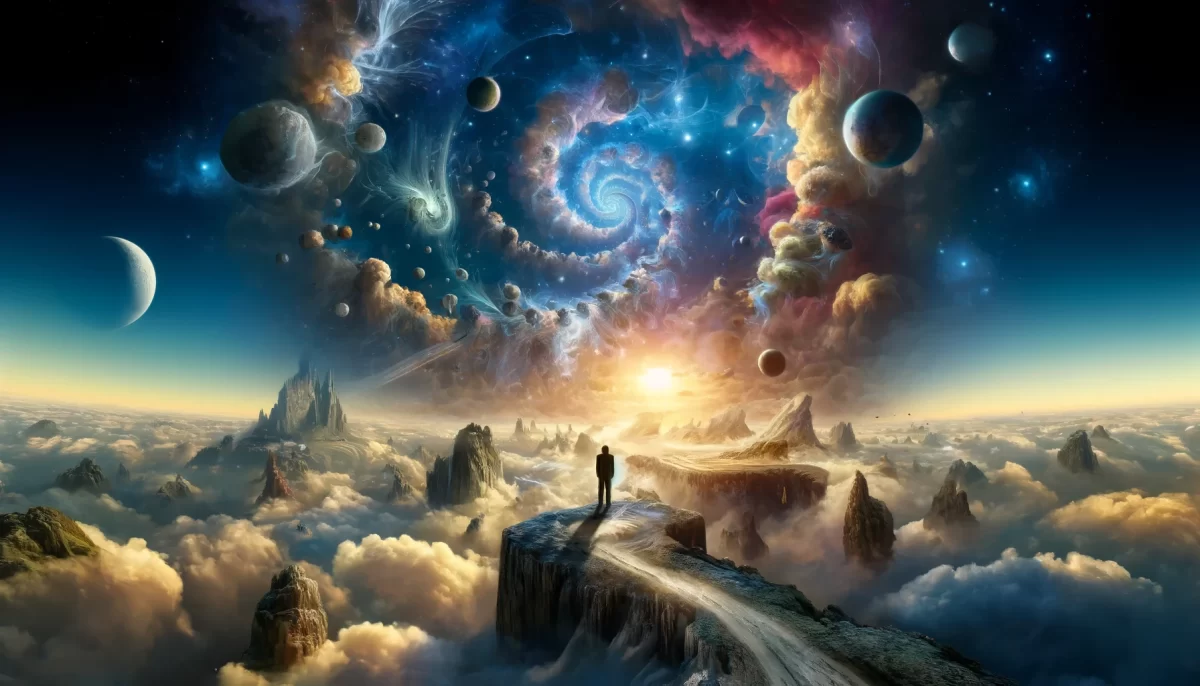
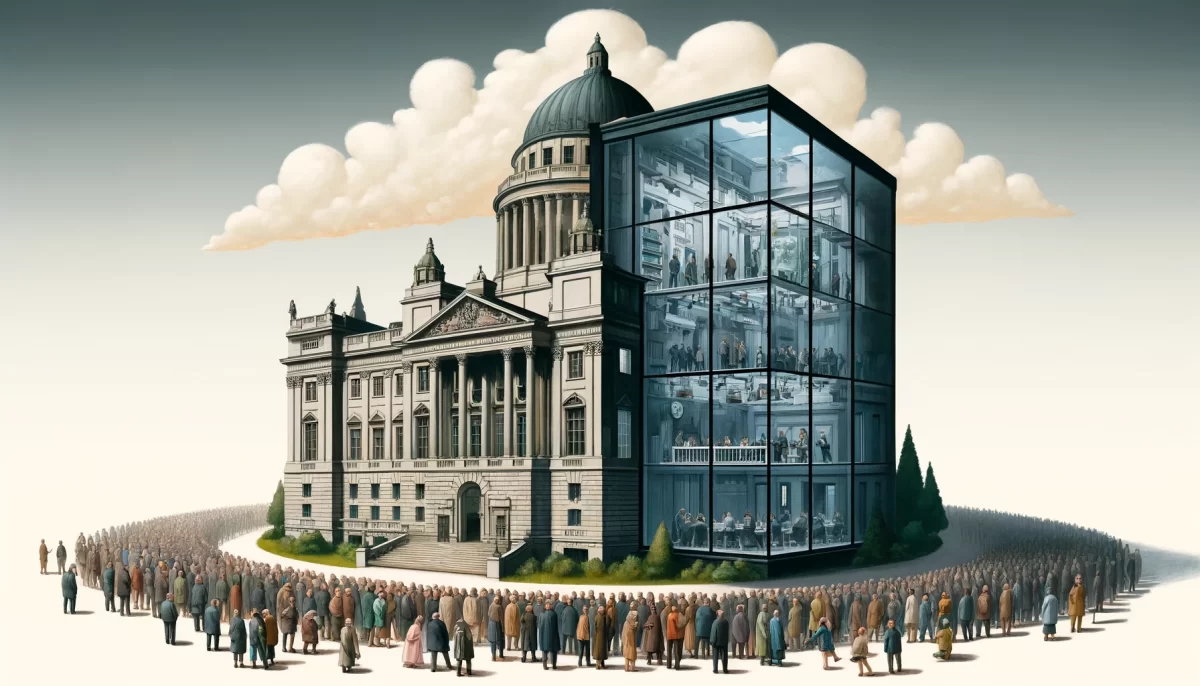

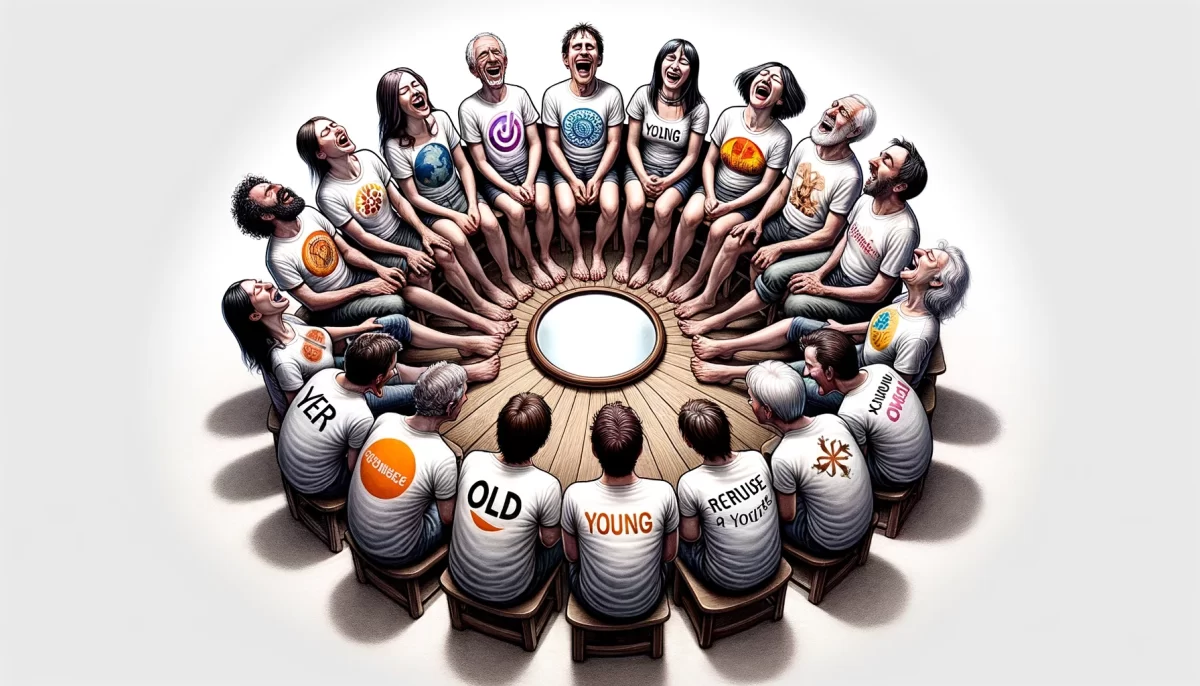
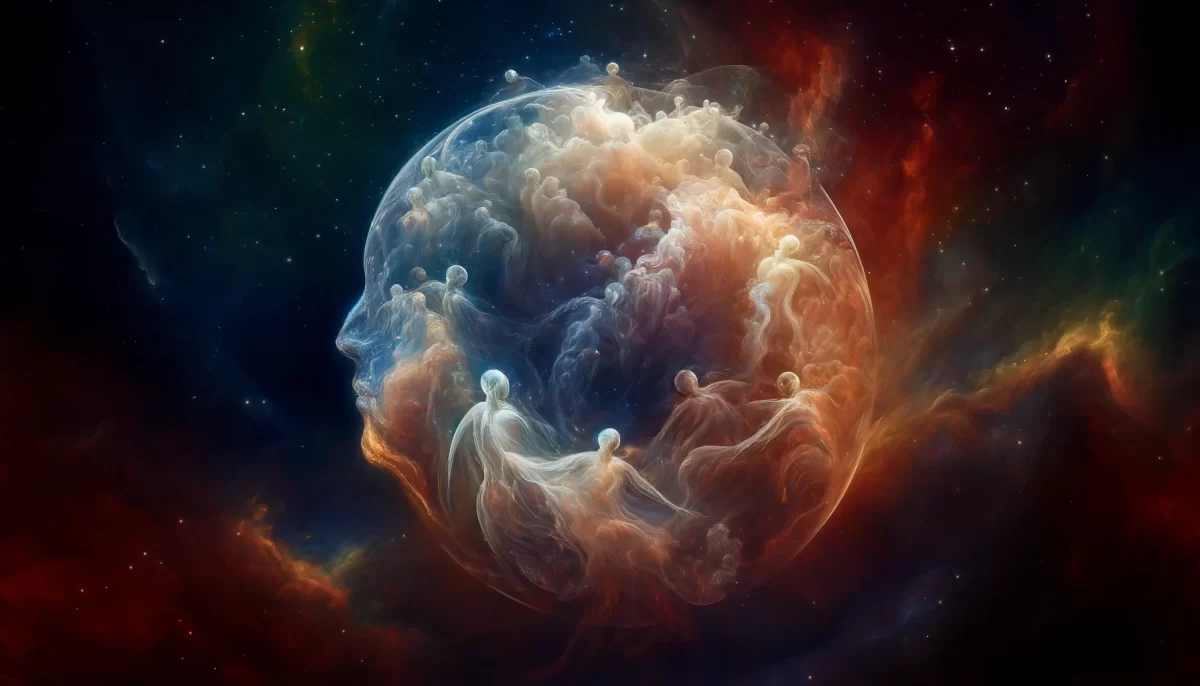
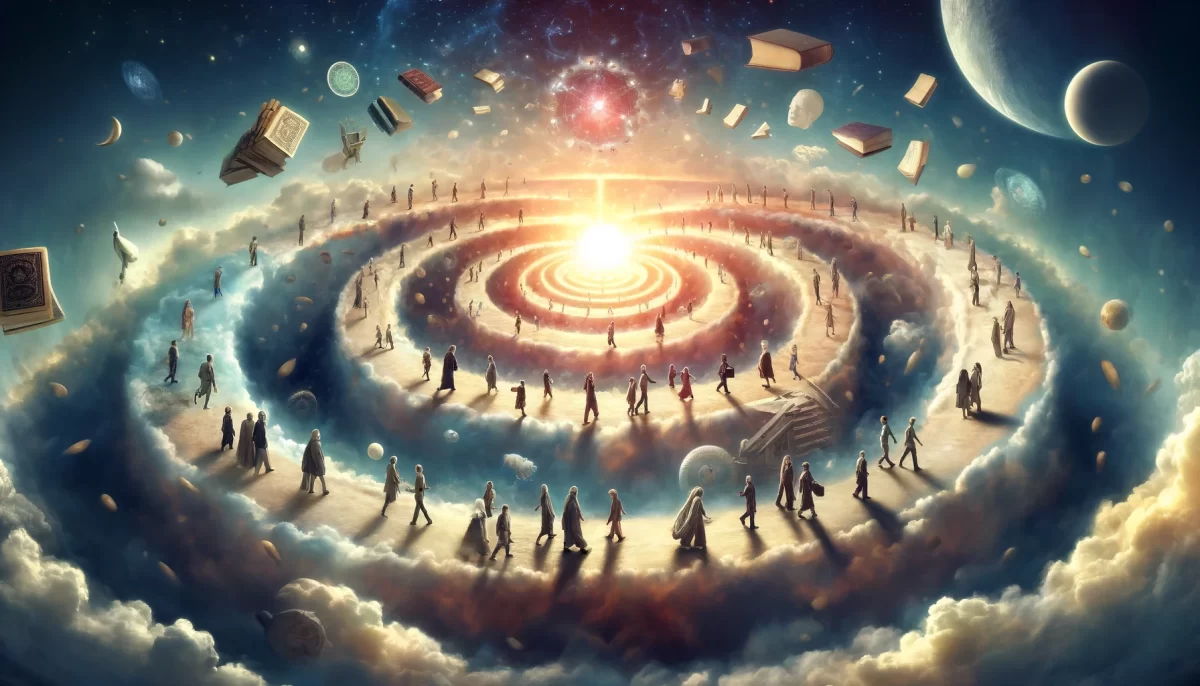


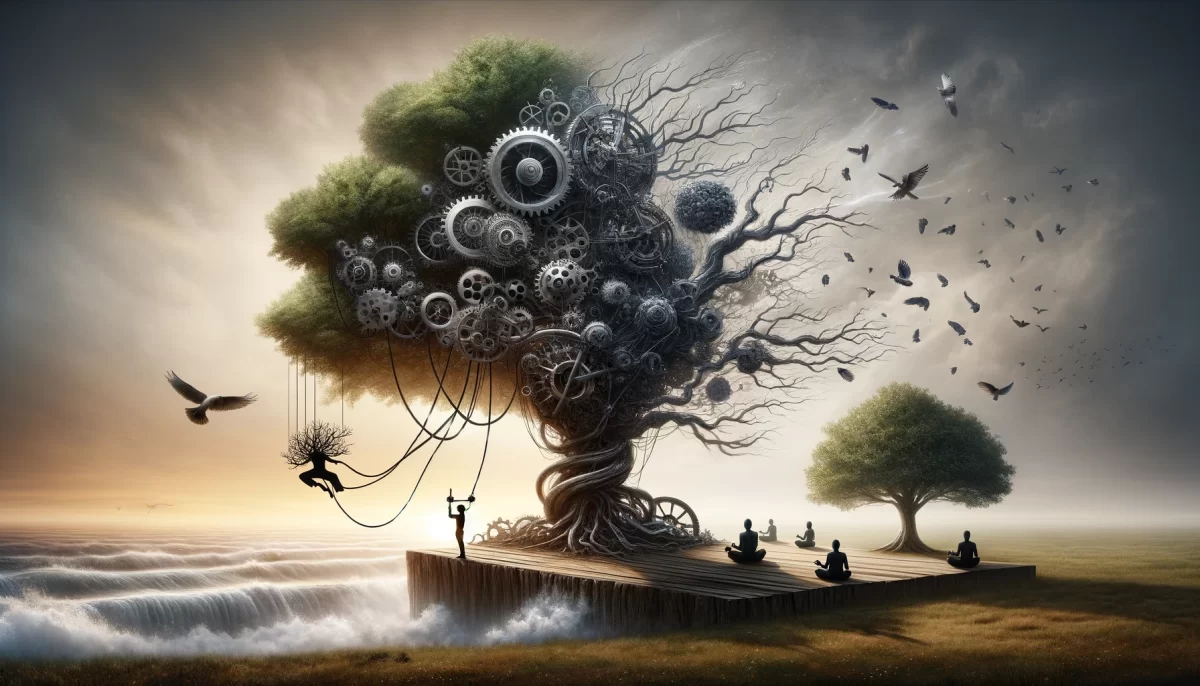

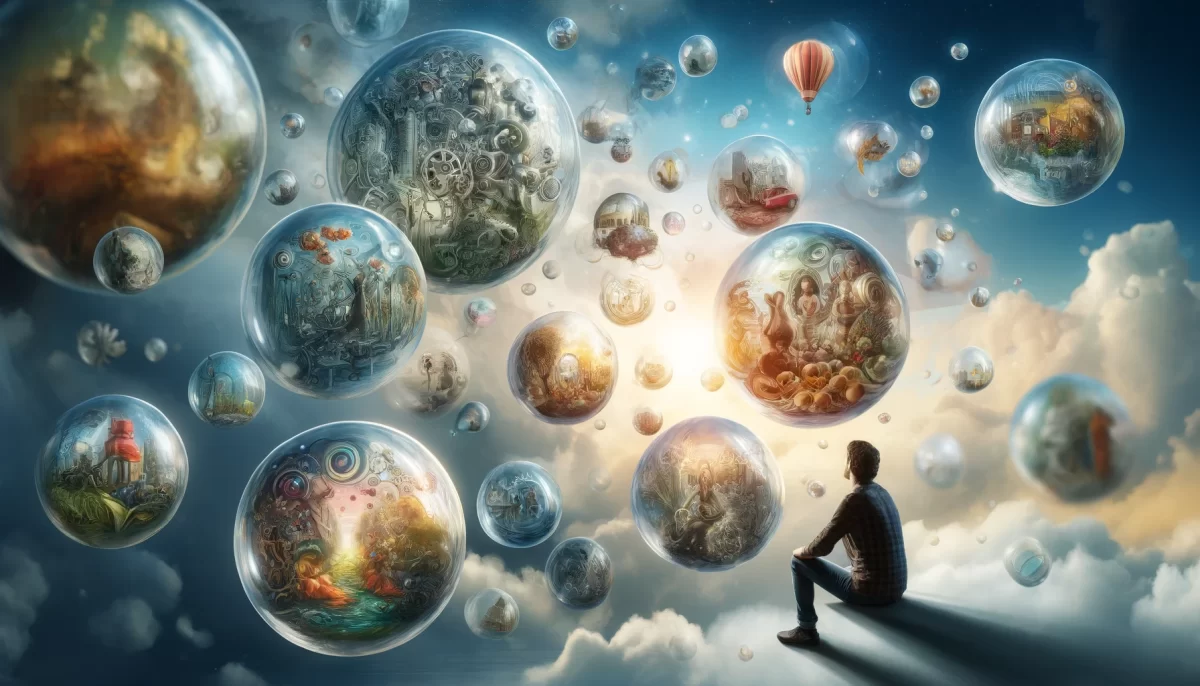
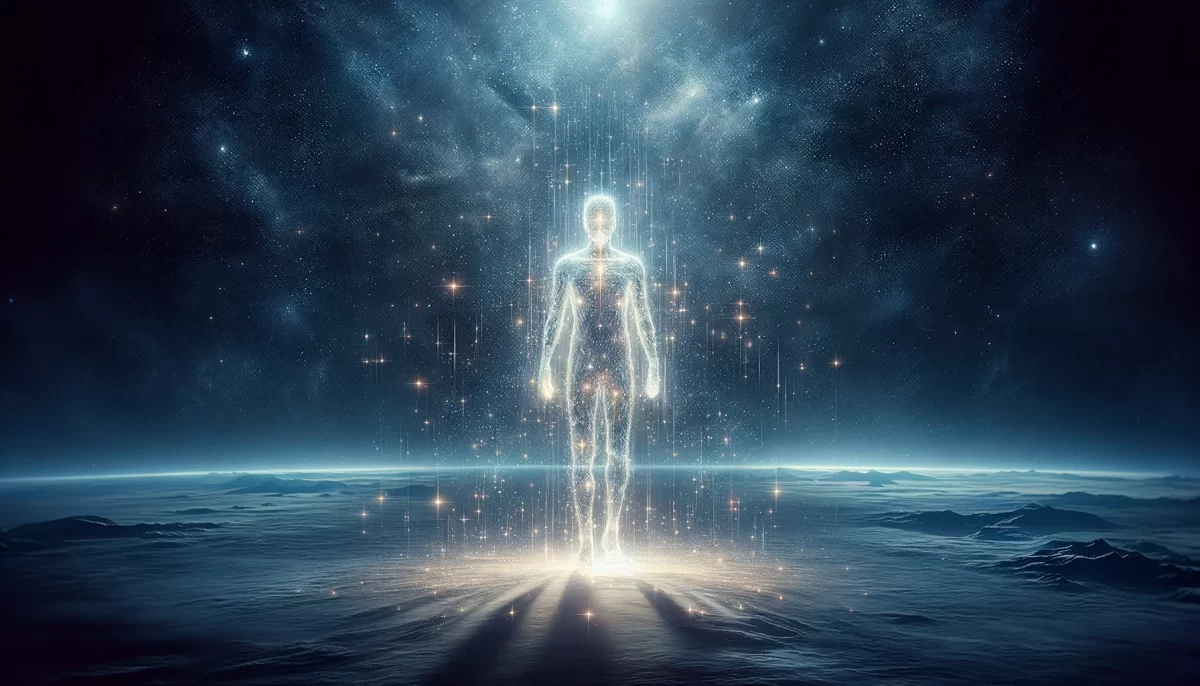
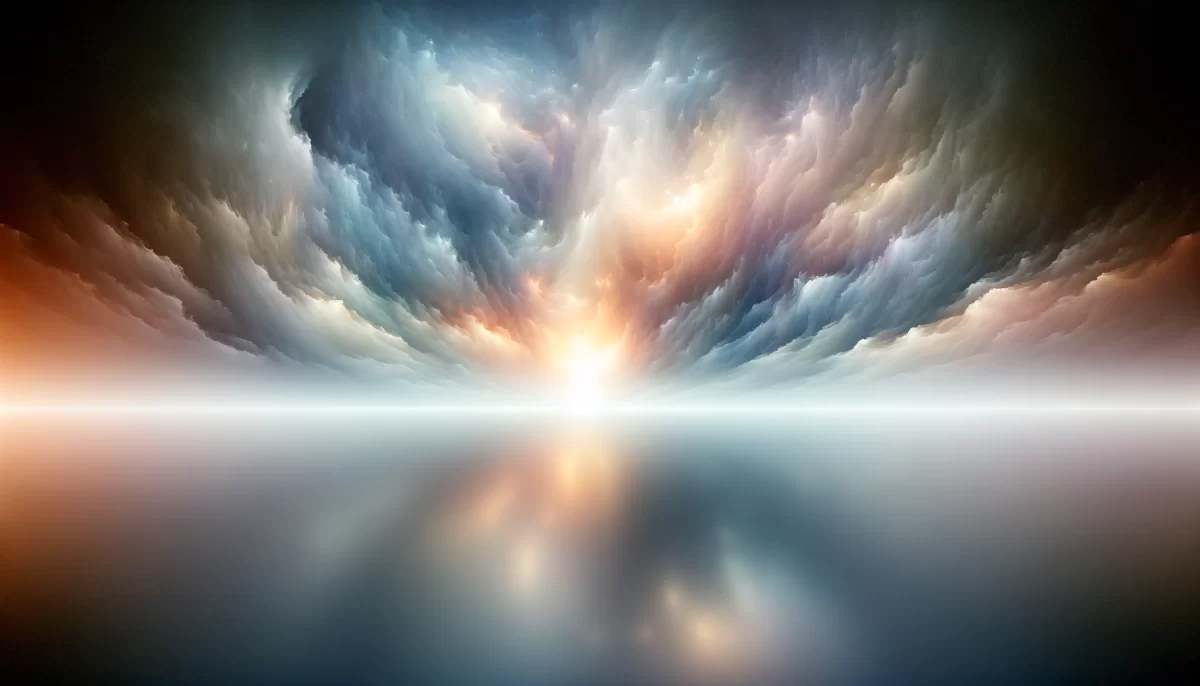



Leave a Reply